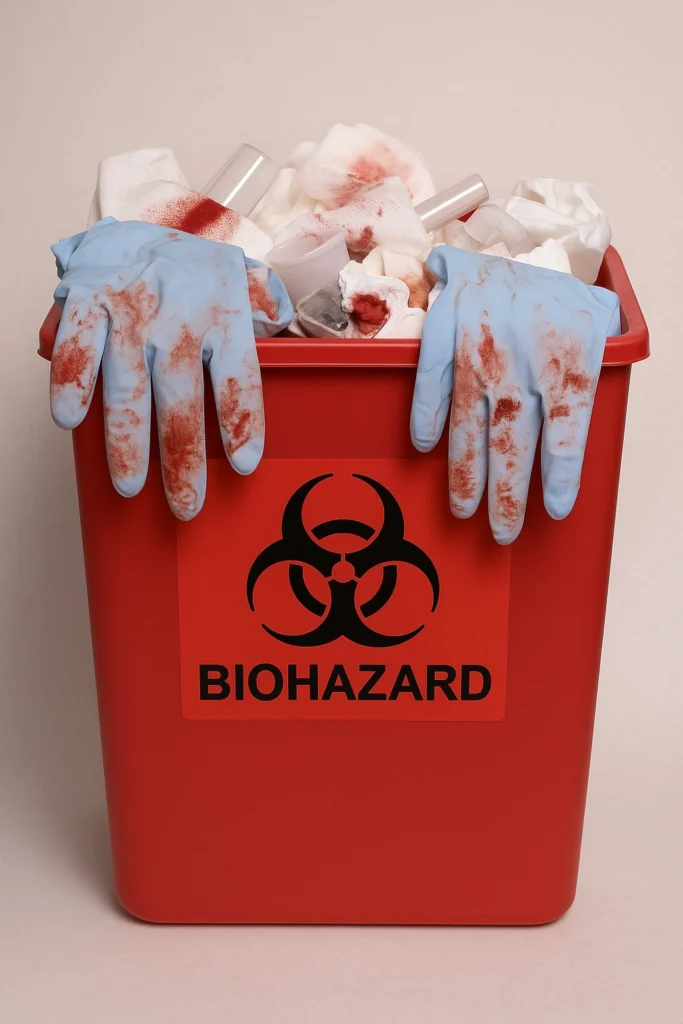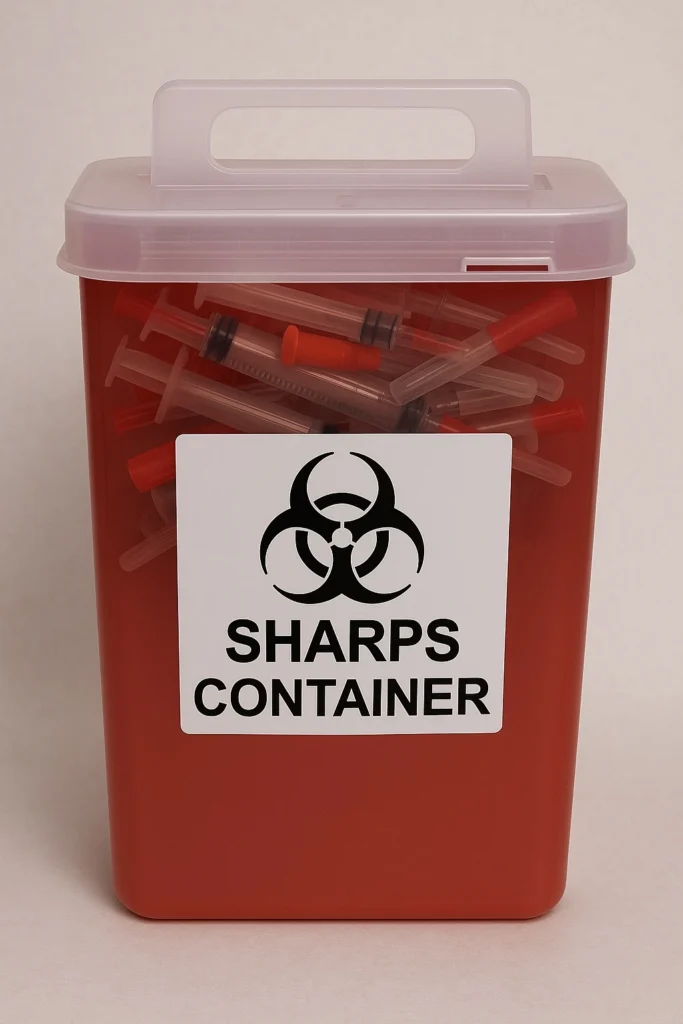Proper handling of regulated medical waste (RMW) is essential to protect public health and the environment. In North Carolina, healthcare facilities must follow specific state rules to manage waste safely, from sharps containers to blood-soaked materials. Yet, understanding these regulations — and maintaining compliance — can be challenging without the right partner.
This guide explains the basics of RMW management in North Carolina and how BioSafe Waste Services offers a reliable, compliant solution for healthcare providers across the state.
What is Regulated Medical Waste in North Carolina?
In North Carolina, regulated medical waste includes:
- Blood and body fluids in containers larger than 20 milliliters.
- Microbiological waste, such as cultures or stocks of infectious agents.
- Pathological waste, including human tissues, organs, and body parts, unless properly treated.
Items like used gloves, bandages, or small blood-stained materials may not qualify as RMW and can sometimes be disposed of as regular waste, depending on the level of contamination. However, when in doubt, facilities are urged to err on the side of caution.
At BioSafe Waste Services, we help clients accurately classify their waste streams — ensuring they don’t overpay for services they don’t need, while staying fully compliant with state guidelines.
Packaging, Labeling, and Storage Requirements
Facilities must properly package and store regulated waste before transport. North Carolina rules require:
- Plastic liners inside leak-proof, rigid outer containers (such as fiberboard boxes).
- Labels featuring the biohazard symbol and the words “INFECTIOUS WASTE” or “MEDICAL WASTE.”
- Information including the generator’s name, address, phone number, and date of shipment.
Storage areas must be secure and only accessible to authorized personnel. Waste must not be compacted and cannot be stored for more than seven days without treatment.
BioSafe makes compliance easier by providing properly labeled containers and scheduled pickups, ensuring your facility remains in line with the law without the headache of managing it all internally.
Approved Treatment and Disposal Methods
North Carolina regulations specify that regulated medical waste must be properly treated before final disposal:
- Blood and body fluids may be incinerated or disposed into sanitary sewage systems (with proper approval).
- Microbiological waste requires incineration, steam sterilization (autoclaving), chemical treatment, or microwave treatment.
- Pathological waste must be incinerated.
BioSafe partners only with certified treatment facilities that meet North Carolina’s strict disposal standards, providing a clear chain of custody from pickup to final destruction.
Training and Recordkeeping Requirements
Facilities generating 50 pounds or more of RMW per month must maintain shipment records, including:
- Number of packages and amount shipped.
- Dates of pickup.
- Names of transporters and treatment facilities.
Records must be retained for at least three years. Staff who handle regulated waste must also be trained under OSHA’s Bloodborne Pathogens Standard.
BioSafe offers compliance support to help clients organize required documentation and training — helping minimize regulatory risk and ensuring peace of mind during inspections.
Why Partner with BioSafe Waste Services?
Managing regulated medical waste correctly isn’t just about following the rules — it’s about protecting your staff, your patients, and your reputation. BioSafe Waste Services is a North Carolina-based company dedicated to making medical waste management safer, easier, and more transparent for healthcare providers.
We offer:
- Easy scheduling and responsive customer service.
- Clear, upfront pricing without hidden fees.
- Proper container supplies and manifest tracking.
- Compliance assistance and training support.
If your facility needs a trusted partner in regulated medical waste disposal, BioSafe is ready to help you stay safe, compliant, and focused on what you do best — caring for patients.
Sources & References:


